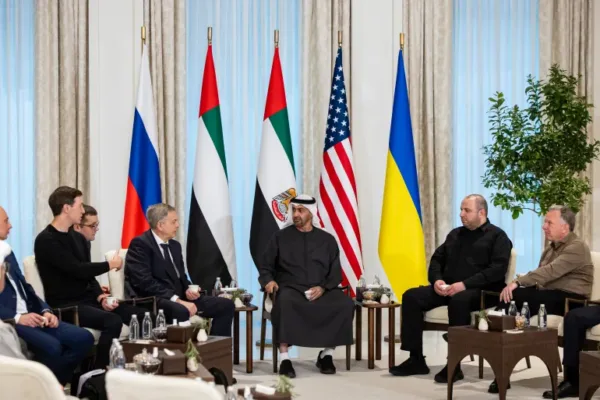Turkish-Japanese Partnership: A Blue Ocean Strategy?
In their best-selling book “Blue Ocean Strategy,” W. Chan Kim and Renee Mauborgne suggest that companies trying to be competitive in a single industry which already has many competitors may find themselves in a “Red Ocean,” in which the margin of revenue is very limited and competition is harsh. Kim and Mauborgne recommend that companies find “blue oceans” in which they will not be easily contested or imitated. This strategy necessitates creative energy and innovative dynamism.
Kim and Maughborne’s views are applicable in almost all fields in the real world, including foreign policy. In the current international system, the insistence on pursuing similar forms of alliances, partnerships and patterns of behavior can bring states to the middle of red oceans. Under these circumstances finding a new framework for cooperation with different states and regions in different fields can provide a blue ocean strategy for countries’ foreign policy strategies.
Potential cooperation between Japan and Turkey can provide a blue ocean for the foreign policies of both states. Both countries are democratic, have a market economy and are located in two of the most conflict ridden and unstable regions of global geopolitics. Japan and Turkey follow a more economically driven foreign policy. Both countries also follow aid and assistance policies in the underdeveloped world that have similar characteristics. There have been no major crises in bilateral relations in previous years and the two countries have no historical or political problems that should damage future relations. In terms of international security, both countries are firm supporters of nonproliferation regimes in both East Asia and the Middle East and have special interest in having nuclear free zones in their own regions. In terms of international institutions both countries are willing to challenge the existing structure of the international organizations, such as United Nations Security Council. Although there is a categorical difference in the current methods of power transition, Turkey is considered to be among the emerging powers and Japan is among the established powers that will likely lose some of its power and status but continue to play a prominent role in international relations.
The different characteristics of these countries can complement each other’s capabilities.
There are various forms of cooperation that two countries can develop in different policy areas. Forming a working relationship among these states in a specific region, such as the Middle East, can be a significant step toward a more comprehensive and sophisticated form of partnership. Both countries have a special interest in the Middle East.
The stability and regional prosperity of the Middle East is significant for both countries’ goals and interest in the region. Both countries are energy dependent and have vested interests in preserving the free flow of oil and gas from the region. They can cooperate in terms of providing this much-needed energy security and economic stability in the region and coordinate their foreign policies concerning conflicts in the region. Moreover, as two democratic countries, they can share their experiences in democratization with the democratic forces of the region and support the growth of institutions in newly democratized countries. Last but not least, Turkey and Japan, both through their private companies and public sector, can also contribute to the reconstruction efforts in countries like Iraq.
The potential partnership between Japan and Turkey in relation to the Middle East may become a model for other forms of cooperation between these two countries in other fields and regions. For example, the success of such cooperation in the Middle East could pave the way for further collaboration with regards to regions such as Central Asia and Africa. By coordinating their policies and forming a framework for cooperation, Ankara and Tokyo could increase their power and influence in these regions.
What is really needed at this point is strategic guidance, the most significant engine of this potential partnership.
This article was originally published in Daily Sabah on March 20, 2014.




















